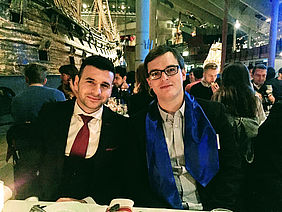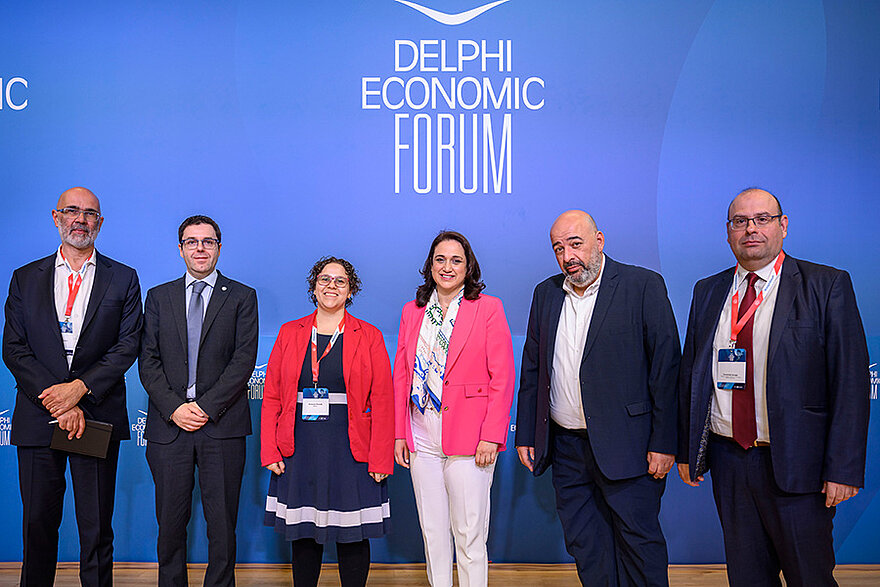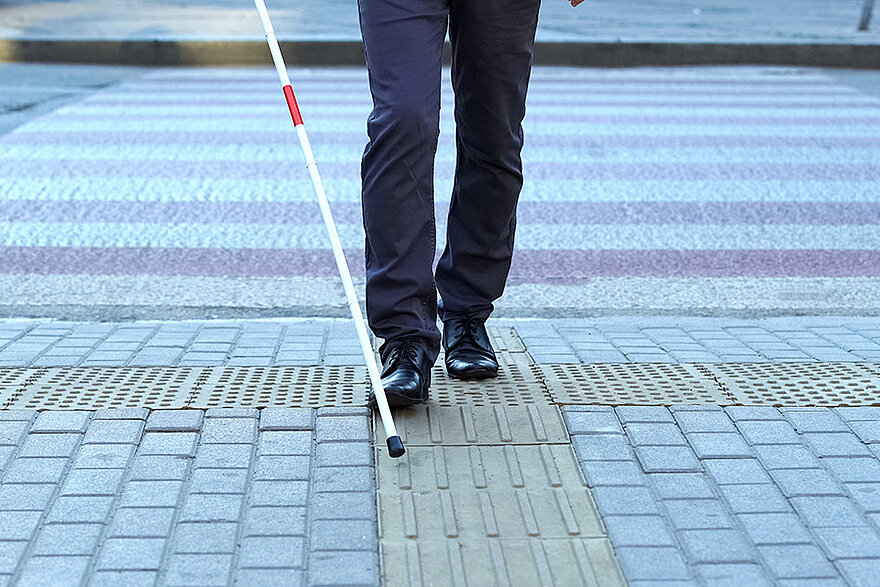Two former EIT Digital students have launched a new company based on lessons learned from a previous attempt. The French Tanguy Racinet and Dzenan Softic, from Bosnia-Herzegovina, offer innovation and product development in the fields of data science, blockchain and data engineering. "We are a R&D team for hire," they summarise and their website GoSmarten.com has just launched. "We already work across Europe with a team of eight operating from Berlin, Lisbon, Nice and Sarajevo."
Racinet and Softic met each other just before the start of the academic year in 2013 when they started the EIT Digital Master School programme, Distributed Systems and Services, now called Cloud Computing and Services at the Rennes Université Rennes I. They did not realise back then, that it would be a match ending up them doing business together. Maybe it was fate.
The computer sciences bachelors might have missed their first encounter in Rennes. Racinet nearly went to study at the Aalto University but choose Rennes I instead. Softic was only sure he would do his second year at the Technische Universität Berlin (TUB), just like Racinet. After exchanging emails with professor Guillaume Pierre from the University Rennes I, he decided to do his first year there. "Professor Pierre was really welcoming and the university assets are good: expertise in cloud computing, strong and famous researchers, and strong industrial partners like Inria."
It was while attending the EIT Digital Master School, that their entrepreneurial spirit was awakened or being fed. Becoming an entrepreneur was not top of mind for Racinet initially. "I was led there because of meeting Dzenan, and experiencing the Business Development Lab in Rennes. I learned that I liked working in a team on a project to solve problems."
To Softic being an entrepreneur runs in his blood. "Before joining the EIT Digital Master School, I was already running some projects. I like creating something from scratch."
Tuiqo
This spirit prompted them to start their own business at the end of 2015 just before graduation, along with friend Fuad Becirbasic. "The funny thing is," says Softic, "once you decide to found a startup, you have a lot of different ideas, but you end up working on something completely different."
That different idea was based on their own frustration with document versions. "It was painful creating several versions of a document. You constantly revise and refine and end up with a folder full of separate versions, with a risk of mixing them up. That problem gets worse when you work in a team. We wanted to solve that."
Their target audience, writers, were also enthusiastic about the proposal to tackle this issue. Tuiqo, a simple document versioning should help them work intuitively on different versions in one file and also make it quicker to iterate either on specific sections or an entire document.
YCombinator
Their idea sounded so promising that good things happened. The idea got accepted on the Silicon Valley accelerator YCombinator's online startup school. "The dream of every entrepreneur," says Racinet. "We got got ten weeks mentoring. Our mentor recommended us to apply for the real accelerator programme. We ended up in the last ten percent of the candidates. We were both happy and sad at the same time: being so close, yet it didn't happen."
Also, the product was well received by its first users. A dozen of pro-customers, individuals and companies, are still using it to this day. Though the proto-users were very enthusiastic, no one wanted to pay for it.
Business decision
These setbacks led to an important business decision in early 2017. After counting the hours invested and the return on investment - zero - they closed the business. "We decided to move on," explains Softic. But when they closed the website, users protested, so Tuiqo remained available to them. "We learned the hard way that the reality is quite different from the successful startup stories you read about," Softic says about the Tuiqo time.
Stop listening to customers
One of the lessons learned, is exactly what Steve Jobs, co-founder of Apple Inc. mentioned in Inc Magazine in 1989: "You can't just ask customers what they want and then try to give that to them. By the time you get it built, they'll want something new."
For the entrepreneurs this means, according to Racinet: "At some point, you need to learn to stop listening to customers. We went in a loop. It was always just lacking one thing to get them to a paid version. Even the recruitment company we had as a user, asked for one more new feature before they would pay. That never happened."
Define your market
Another lesson concerns defining the market. Softic recalls: "In the beginning we targeted writers. As you go deeper into building the product and talking to more people, you get new target groups. You notice that more people in different markets need your product. We ended up with lawyers, journalists, researchers and engineers. Serving different markets requires different features. If you go with that, you lose yourself. You must stick to who is your primary customer until you put your first version on the market."
Know what you want
The very best the young entrepreneurs learnt from the Tuiqo experience is knowing what they really want. Softic: "We definitely like building new things, working with new technologies and being independent."
Hackathon
 The entrepreneurs became interested in blockchain and stumbled upon a Deutsche Telekom Hackathon. The trio saw it as an opportunity to try this new technology. They applied, entered the competition and picked a challenge from the pharmaceutical company Merck about performing clinical trials using blockchain. Against all odds - with no previous experience with blockchain - they competed against more than forty competitors to win second prize, collecting two thousand euro.
The entrepreneurs became interested in blockchain and stumbled upon a Deutsche Telekom Hackathon. The trio saw it as an opportunity to try this new technology. They applied, entered the competition and picked a challenge from the pharmaceutical company Merck about performing clinical trials using blockchain. Against all odds - with no previous experience with blockchain - they competed against more than forty competitors to win second prize, collecting two thousand euro.
New company
The experience of creating technological solutions together made the young team hungry for more. So in 2018, just a little older but lots wiser, Racinet and Softic started spending their evenings and weekends working on a new business. Both have full-time day jobs on the side, Racinet is data scientist at a large telecom company and Softic is a machine learning engineer at a big energy provider.
R&D for hire
Their startup's business model is to do research and development and consulting for other startups and mid-sized companies in the fields of data science, blockchain and data engineering. "We're an R&D team for hire," Racinet summarises. The entrepreneurs experiment, research, and develop new products that help people solve daily problems and improve their lives. Their ambition is to use their profits to invest in their own innovative projects, ending up with a European lab for technical innovation, generating new opportunities and jobs in areas that have not been previously explored.
GoSmarten
One of their early commissions was so large, that it was time to move to the next level, to name the startup and kickstart the new business. They now have a team of eight people spread over four European countries. Softic is based in Berlin, Racinets operates from Nice, and the other teammates work from Lisbon and Sarajevo. They launched their GoSmarten.com website in March 2018 and are about to register the company in Germany. "We are a European company."
Europe
The road ahead will be bumpy in Europe, Racinet sighs. "Launching a startup in Europe is difficult. Europe lacks the American mentality. Both customers and investors play it safe. Europe is missing the boat. I have an affinity for what's going on in China. I've seen up close what's happening there. Boy, we are late. China is taking the lead in computer vision and machine learning while Europe is falling behind. The Chinese Government invest a lot in new technologies and is backing and helping companies to move things forward. We really need to catch up and try to do something to compete with Chinese companies." To Racinet and Softic that doing something starts with GoSmarten.com.







